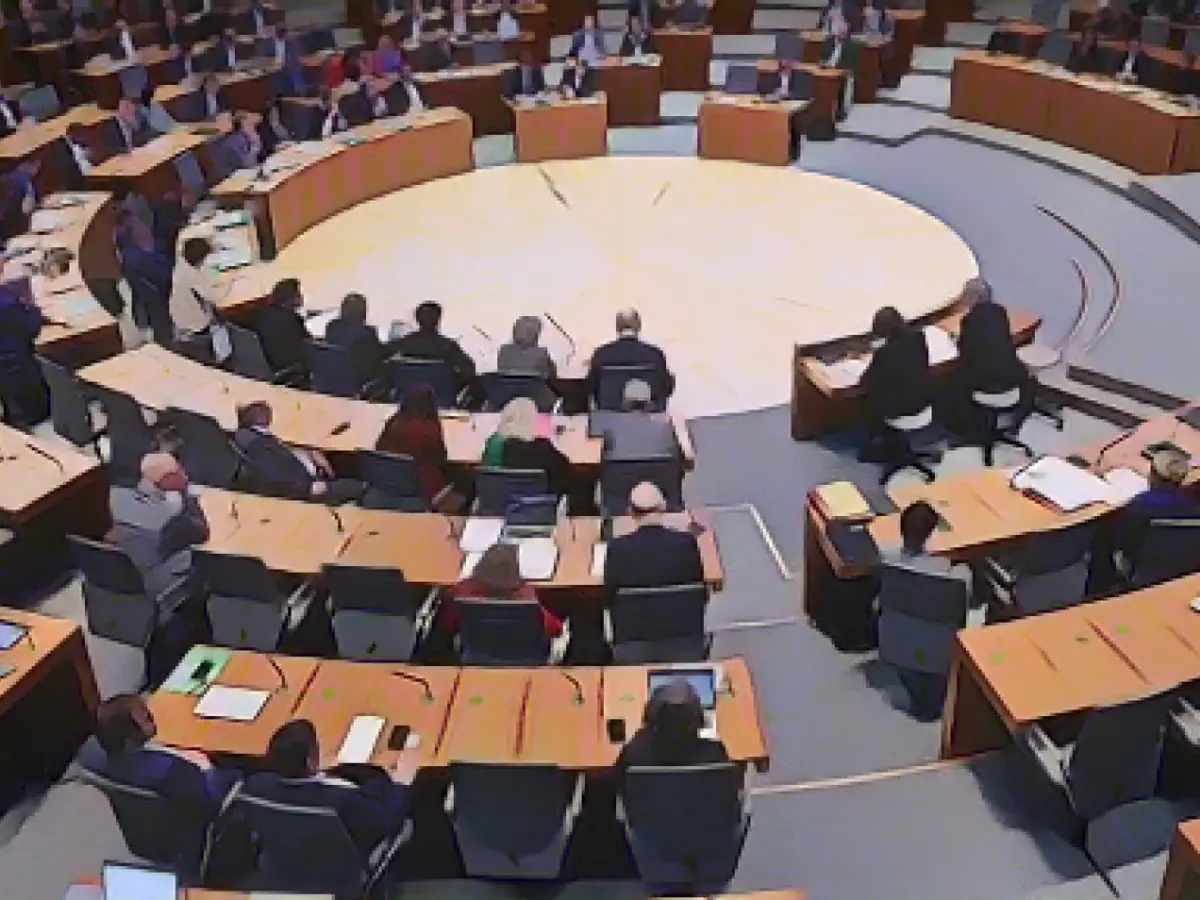New Version
Ministers and Cabinet Members Get a Boost: Wüst and Colleagues Set to Receive Salary Increases
Great news for Minister President Hendrik Wüst (CDU) and his cabinet members! Starting January 1st, they'll enjoy an inflation allowance of 1,800 euros. From January to October, they'll also receive monthly payments of 120 euros. And it gets better! From November, their basic salaries will increase by 200 euros, and, come February 2025, there's a 5.5% hike in store.
Why this generosity? The inflated remuneration package for the cabinet is tied to the wages of civil servants, which will be adjusted accordingly. The city newspaper 'Kölner Stadt-Anzeiger' previously reported this.
The government of Düsseldorf, under the CDU's leadership, is sharing the fruits of a recently negotiated wage agreement for public sector employees. Initially proposed for civil servants in North Rhine-Westphalia, this agreement will impact the cabinet in the same way.
"Following customary practice," a spokesperson for the state chancellery explained, "members of the state cabinet will receive inflation adjustment payments equivalent to those received by all other civil servants in North Rhine-Westphalia." This practice has already been adopted at the federal level.
The base salary for Minister President Hendrik Wüst, under the Ministerial Act, is level B11 plus one third, resulting in a minimum gross salary of 20,600 euros, including his official expenses allowance of 1100 euros. However, the exact figure remains unclear due to confidential elements, such as family allowance per child and compensation for non-seat office residence.
Cabinet ministers, receiving an additional 600 euros allowance, earn approximately 19,000 euros prior to the mentioned family allowance and commuter allowance.
More to Explore:
The recent salary adjustments for ministers and the cabinet stem from wage negotiations involving public sector employees in North Rhine-Westphalia, as highlighted by 'Kölner Stadt-Anzeiger'. However, the specific impact on the state's finances, or the informal bargaining power of trade unions like Verdi seeking a 8% salary increase (or at least 350 euros per month) for public sector workers across multiple regions, warrants attention.
Inflation, rising living costs, and other economic factors impact the need for higher wages within the civil service. As wages increase, so do overall labor costs for the state, which could potentially exceed budgetary capabilities if not handled with care. Conversely, such wage increases could stimulate local economies through increased consumer spending.
The political and social implications of managing rising wages are also substantial. Depending on public opinion and support for union demands, this could either strengthen or weaken the government's position in handling the financial implications.
For more detailed financial analysis, specific policies related to public sector wages in North Rhine-Westphalia and their fiscal implications would be required.








